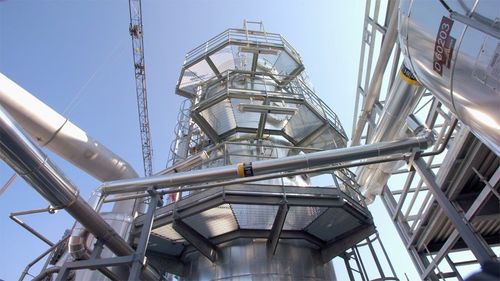Argent Energy launches technical-grade, biobased glycerin for the chemical market

October 18, 2024
BY Argent Energy
Argent Energy, a leading European biofuels manufacturer, has officially launched Europe’s largest facility dedicated to producing biobased, technical-grade glycerin at its Port of Amsterdam site.
The state-of-the-art refinery will upgrade crude glycerin, a by-product of Argent’s waste-based biodiesel process, into 99.7% pure technical-grade glycerin.
This development, set to produce 50,000 tons of bi-based glycerin, provides chemical producers, for which glycerin is an important product, with an opportunity to use a biobased alternative that provides clear environmental benefits over conventional options.
Argent Energy’s biobased glycerin, suitable for a wide range of technical applications, offers a replacement for several petrochemicals, giving industries the opportunity to embrace a circular economy and reduce their reliance on fossil fuel-derived feedstocks.
Advertisement
Advertisement
Louise Calviou, CEO of Argent Energy said at the launch, “We are delighted to officially launch the new glycerin refinery as part of our expansion to our biodiesel facility in the port of Amsterdam, which will create over 30 new jobs once complete. Our entrance into the chemical market is driven by our goal to maximize product value and support the circular economy. By upgrading glycerin from our processes into a technical-grade product, we’re giving the chemical industry a biobased option they can confidently use in their own products.”
In attendance at the official launch was Esther Rommel, Provincial Executive Member for Spatial Development, Economy, Ports, and Recreation in North Holland, who said of the development: “The province of North Holland wants to be fully circular by 2050. I am therefore proud of companies like Argent that invest in the port and contribute to the raw materials transition. The province will support companies in their journey to circular entrepreneurship, now and in the future.”
Also present at the event was Roon van Maanen, director energy and circular industry at Port of Amsterdam, stating, “The Port of Amsterdam is proud of this sustainable initiative by Argent Energy in the Amsterdam port area. The opening of the glycerin plant is a big step towards a circular economy where by-products are upgraded to a new technical-grade product. This fits perfectly into our strategy to be a leading European seaport, focusing on the transition to a sustainable society.”
Advertisement
Advertisement
The glycerin is made from the biodiesel production process. Fully certified under the International Sustainability and Carbon Certification (ISCC), the product is fully traceable, ensuring the highest sustainability standards.
Argent Energy currently produces over 190,000 tons of waste-based biodiesel per year, supplying it to international markets for road transport, marine, and power generation. Argent Energy continues to scale up its operations and decarbonization efforts, with plans to soon triple biofuel production at its Amsterdam site alone.
The new glycerin refinery includes full distillation and polishing techniques to achieve the high-purity product, with dedicated tanks, pipelines, and loading bays to avoid cross-contamination.
For more information about Argent Energy’s biobased technical-grade glycerin, please visit www.argentenergy.com.
Related Stories
The European Commission on July 18 announced its investigation into biodiesel imports from China is now complete and did not confirm the existence of fraud. The commission will take action, however, to address some systemic weaknesses it identified.
Kintetsu World Express Inc. has signed an additional agreement with Hong Kong, China-based Cathay Pacific Airways for the use of sustainable aviation fuel (SAF). The agreement expands a three-year partnership between the two companies.
Broco Energy on July 17 announced a new partnership with the Massachusetts Port Authority (Massport) to deliver and transition Massport's fuel tanks to renewable diesel across its various facilities.
Shell Aviation, Accenture, and Amex GBT on July 10 announced Avelia is in the process of evolving to an industry solution with independent data hosting and a multi-supplier model helping users access the GHG benefits of SAF.
The U.S EPA on July 17 released data showing more than 1.9 billion RINs were generated under the RFS during June, down 11% when compared to the same month of last year. Total RIN generation for the first half of 2025 reached 11.17 billion.
Upcoming Events










